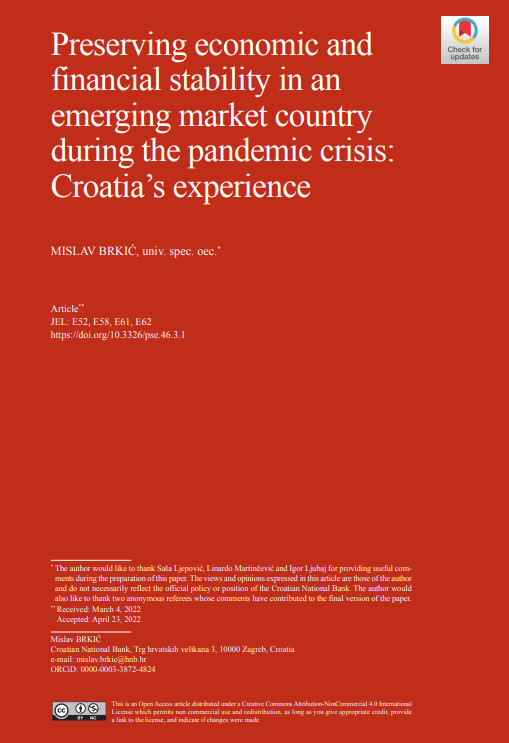Preserving economic and financial stability in an emerging market country during the pandemic crisis – Croatia's experience
DOI:
https://doi.org/10.3326/pse.46.3.1Keywords:
monetary policy, fiscal policy, COVID-19, international reserves, financial crisisAbstract
The Croatian authorities' response to the pandemic crisis was considerably larger in its size and scope than the response to the 2008-09 global financial crisis. This paper aims to identify the factors that allowed the authorities to respond so ambitiously this time. In particular, the paper explains how solid initial macroeconomic fundamentals backed by a steady inflow of EU funds enabled the Croatian authorities to take bold steps to restore financial market stability and provide liquidity support to the economy without compromising exchange rate stability and fiscal sustainability. In addition, as an EU member state, Croatia was able to benefit from a currency swap line with the ECB, as well as from the EU's common recovery facility – the Next Generation EU. Finally, the paper identifies some external factors that positively reflected on Croatia during the pandemic crisis, but which were beneficial to other emerging market economies as well.

Downloads
Published
How to Cite
Issue
Section
License
Copyright (c) 2022 Mislav Brkić

This work is licensed under a Creative Commons Attribution-NonCommercial 4.0 International License.








